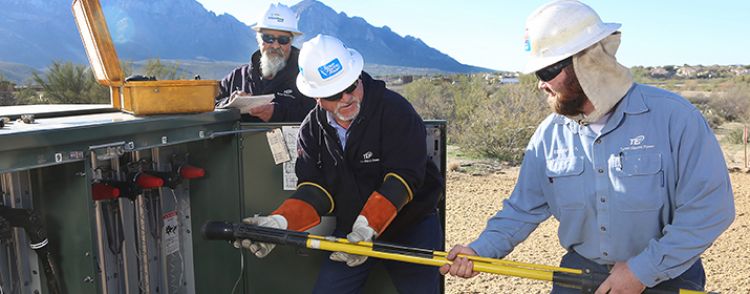
Arizonan utility Tucson Electric Power (TEP) has proposed a new rates structure for rooftop solar customers that would cut solar credits and instate time-of-use (ToU) rates.
This proposal is the second instalment of a rate case the utility filed with the Arizona Corporation Commission (ACC) in February. The first part proposed a US$8.50 increase on an average electricity bill compared to November 2015 rates.
Try Premium for just $1
- Full premium access for the first month at only $1
- Converts to an annual rate after 30 days unless cancelled
- Cancel anytime during the trial period
Premium Benefits
- Expert industry analysis and interviews
- Digital access to PV Tech Power journal
- Exclusive event discounts
Or get the full Premium subscription right away
Or continue reading this article for free
This new proposal attempts to come up with new pricing options for solar customers, after net metering was formally ended in the state in December last year. In its filing TEP proposed an export rate of 9.7 cents/kWh for excess solar power, compared with the current rate of around 11.5 cents/kWh – with the retail rate standing at around 13-14 cents/kWh.
The utility also proposed demand charges and a US$4 meter-reading charge for solar customers, as well as a ToU rate structure. ToU rates are based on the time of day electricity is used and the cost of supplying electricity to a consumer at that time. If electricity is used during off-peak hours, the rate will be lower than the standard flat rate. Likewise, on-peak hours will cost more than the standard rate.
Customers will be forced to choose between a ToU rate with a monthly grid-access fee of US$3.50/kW or a ToU rate coupled with a demand charge based on their highest hourly energy usage during the month.
Last summer, fellow Arizonian utility APS submitted a request to implement a mandatory demand charge for residential customers.
The utility says that the changes to existing rate structure and pricing are needed to fairly bill solar customers for their use of the grid. Whilst TEP argues that the changes would “allow customers to realise significant savings by going solar”, according to TEP spokesman Joe Barrios, industry advocates say the changes fail to take into account the full benefits of solar.
“Solar customers are investing their own money to do something that benefits everybody, so it doesn’t make sense to go out of our way to charge them exorbitant fees,” said Court Rich, vice president of the Arizona Solar Energy Industries Association.
The proposals are subject to approval, rejection or modification by state regulators.






